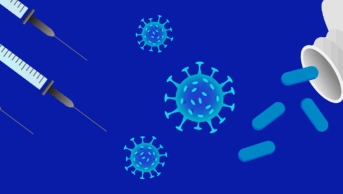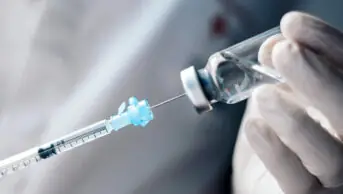The anthropologist Linton defines status as individuals or groups possessing polar positions with reciprocal behaviour. For example, one position may be higher and one lower — as with two hens in a pecking order. Status is symbolic; class is material. Conspicuous, stylish consumption of wealth, or spending, such as buying an opulent car, enhances status. Generally, to spend more requires higher income. So this paper bears income in mind as one important factor connected with status.
Many pharmacists believe that prescribing will enhance their status. But, in my view, going down that route will not be without risk. The most obvious risk for pharmacists’ status is if pharmacists leave their premises to prescribe in doctors’ surgeries. The staff remaining to dispense might well be pharmacy technicians qualified to NVQ 3 level and holding a checking technician qualification. Such technicians, working within quality systems, can dispense accurately.
However, suppose pharmacists’ foray into supplementary prescribing in surgeries is unsuccessful? We do not yet know whether pharmacists will succeed there. Certainly, competitors, such as nurses, possess more experience than pharmacists do in such surgeries. Suppose pharmacists desire to return to their pharmacies to supervise dispensing again. Pharmacy technicians, who are enthusiastic about dispensing and checking themselves and do not (presently) aspire to prescribe, may not want pharmacists back. The Government, having observed that technicians could dispense, accurately, alone, at lower cost, may agree. Pharmacists would have abandoned a core role without any gain elsewhere.
Pharmacists’ encouragement of pharmacy technicians to contribute significantly to the pharmaceutical service does not extend to pharmacy technicians being the pharmaceutical service — without pharmacists. Perhaps, it is risky for pharmacists to abandon dispensing to pharmacy technicians, especially if they, too, are registered by the Royal Pharmaceutical Society. Patients, for example, could confuse pharmacists and technicians.
Put bluntly, if technicians alone dispensed, pharmacists would not have any status relationship with patients because they would not be part of the dispenser-patient pair. Pharmacists would have no status because they would have “vanished”. They would also gain no income from dispensing to spend in maintaining status.
Secondly, I outline another route by which pharmacists could lose their dispensing role. Today, doctors prescribe and pharmacists dispense. Doctors and pharmacists almost always cooperate in a collegiate fashion; however, conflict might occur in the area of doctor dispensing in rural areas. Taking the moral high ground, pharmacists argue that doctors are not trained to dispense. Similarly, pharmacists are not trained to prescribe for serious disease — but want to do so following just 25 days’ desk training and 12 days’ assessment. Suppose that doctors, using similar logic, reciprocated by lobbying for, and obtaining, dispensing rights under the National Health Service in rural and urban areas. The mechanism would be as “supplementary dispenser” to pharmacists under a “group dispensing directive” — subject to completion of just 25 days’ desk training and 12 days’ assessment. Of course, doctors would not need actually to do this training if they did not wish to be paid to dispense on the NHS. British law has allowed such dispensing for centuries.
Pharmacists may find my next observation distressing. Arguably, the facts that doctors have always dispensed and that doctors, compared with pharmacists, possess higher income and status, raise the status position of pharmacists (who also dispense) with patients. Were doctors to attempt to take over NHS dispensing in urban areas instead of pharmacists, pitched battles between pharmacists and doctors would return. The resulting spectacle would be disreputable in the eyes of the public; the status of both pharmacists and doctors would fall.
Thirdly, consider the status relationship between doctors and pharmacists. Applying this to the pair of (independent) prescribing doctors and (supplementary) prescribing pharmacists, the continuing, superior status of the doctors is reinforced by the very meaning of the English adjectives “independent” and “supplementary”. Compare that with the present status of community pharmacists within pharmacies (counter) prescribing for minor illness; doctors are absent. There, pharmacists are independent prescribers and retain autonomy. If pharmacists leave pharmacies, that status will vanish.
During supplementary prescribing, however, pharmacists would also prescribe for “major disease” such as asthma; status differences between pharmacists and patients would widen and narrow between pharmacists and doctors, as already mentioned. This is part of the jostling for status between professions such as medicine and pharmacy: an endeavour that spans generations. Presently, it is unclear how committed doctors are to moving towards supplementary prescribing. Moreover, doctors’ enthusiasm for their new fellow independent prescribers that have been proposed — chiropodists, optometrists, podiatrists, specialist physiotherapists and certain nurses — is also unclear.
Finally, consider the prestige of the other group that would join pharmacists as supplementary prescribers, namely, nurses. The delivery of medicines forms a chain. It comprises, in turn, prescribing, dispensing and administration: the specialties of doctors, pharmacists and nurses, respectively. Most administration in hospitals is by nurses; television broadcasts of hospitals often feature nurses poised by medicine trolleys. At home, patients generally administer to themselves, so its status is low. Of course, nurses are expert healers. Pharmacists’ training is, however, 67 per cent longer than that of nurses, but pharmacists and nurses are lumped together as supplementary prescribers. Generally, nurses earn less then pharmacists. Therefore, pharmacists’ remuneration would tend to decrease, compared with its level had nurses not been in the same group.
Presumably, those pharmacists who were supplementary prescribers would earn more than those who were not. Therefore, supplementary prescribing by pharmacists should enhance their status. Generally, the income gap between the pair of prescribing pharmacists and pharmacy technicians, compared with non-prescribing pharmacists and pharmacy technicians, would widen.
In conclusion, I am not arguing that pharmacists should not be supplementary prescribers. They must be. For nurses to so prescribe while pharmacists do not would waste education and dismay pharmacists. But, perhaps, they should not be so engrossed, dazzled even, by the prospect of prescribing for major illness that they are blind to certain implications. Pharmacists who gleefully slide down the banister of pharmacist prescribing may find splinters pointing the wrong way.


